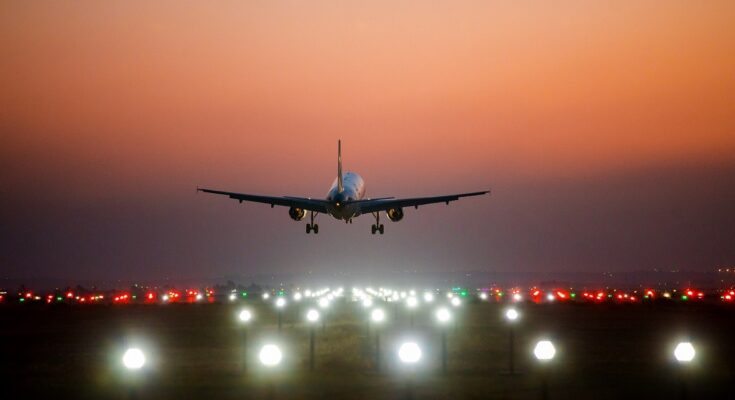
Photo source: Queen Alia International Airport
As tensions between Iran and Israel persist, Jordan, Syria, and Lebanon have reopened their airspace to civilian traffic while continuing to monitor regional developments.
However, airspace over Iran, Israel, and Iraq remains closed amid escalating security concerns.
The closures followed a reported Israeli strike on nuclear facilities near Tehran on June 13.
“Following the statement issued by the Jordanian Civil Aviation Regulatory Commission, Jordanian airspace has been reopened to incoming, outgoing, and transiting flights,” Queen Alia International Airport in Amman said in a statement.
Syria’s General Civil Aviation Authority (GCAA) also confirmed the reopening of all domestic and international air corridors to civilian flights.
EASA warns of heightened risks

Ben Gurion Airport.
Despite partial airspace reopenings, the European Union Aviation Safety Agency (EASA), in coordination with the European Commission, has issued a Conflict Zone Information Bulletin (CZIB) cautioning airlines against operating in the region.
The bulletin classifies military activity over Iran, Israel, and neighboring states as posing a “high risk” to civilian aviation.
“EASA recommends not to operate within the affected airspace at all flight levels,” the CZIB states. “Air operators should closely monitor airspace developments and adhere to all published aeronautical guidance.”
While some countries have reopened airspace, EASA notes the volatile security situation offers limited assurance that risks can be mitigated in time.
European authorities will continue to monitor developments and update their guidance accordingly.
Airlines adjust flight operations

In response to the evolving situation, several airlines have canceled or rerouted flights across the region.
Israel’s national carrier, El Al, has suspended flights to destinations including Tokyo, Moscow, and multiple European cities until at least June 17, pending security assessments. Some routes are canceled through June 23.
Gulf carriers including Emirates and Etihad have suspended flights to Amman and Beirut until June 22, and to Tehran, Baghdad, and Basra through June 30. Qatar Airways, Gulf Air, and Air Arabia have also made route adjustments or issued cancellations.
Major international carriers such as Delta, British Airways, and Lufthansa have paused services to Tel Aviv and Beirut.
Greece issues additional assistance guidelines

Maps from the UK Foreign Office showing the travel advisory status for each region of Israel (left), Iran (top right), and Egypt (bottom right). Photo source: UK Foreign Office
The Greek Ministry of Foreign Affairs advises nationals in Jordan and Lebanon to remain in contact with airlines, stay informed through official channels, and follow local authority instructions.
Greek citizens may contact the Embassy of Greece in Amman at +962 795693000 or via email at gremb.amn@mfa.gr. The ministry also reiterated that its October 15, 2023, advisory against non-essential travel to Lebanon remains in effect.
Global governments respond
In light of the Israel–Iran conflict, several countries have updated their travel and security guidance.
– The UK Foreign Office advises against all travel to Israel and the Occupied Palestinian Territories and has issued heightened warnings for parts of Lebanon, northern Jordan, and Egypt’s North Sinai.
– The U.S. State Department has authorized the voluntary departure of non-emergency staff from Israel and is urging citizens to leave while commercial flights remain available.

Senator the Hon Penny Wong, Minister for Foreign Affairs (right), visits the DFAT Crisis Centre on Monday, June 16, 2025, to provide consular support to Australians across the Middle East. Photo source: Australian Government Department of Foreign Affairs and Trade
– Australia is preparing evacuation support for its citizens in Israel and Iran, with hundreds already registered.
– India’s embassy in Tehran has issued safety advisories and is sharing real-time updates via helplines and Telegram channels.
– South Korea has urged restraint from all parties and issued special advisories for travel to Israel and parts of Iran.
Follow GTP Headlines on Google News to keep up to date with all the latest on tourism and travel in Greece.
Source link



